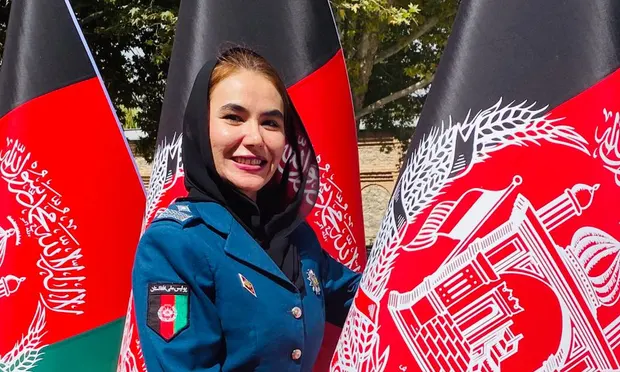hen the Taliban entered Kabul on the morning of 15 August last year, Gulafroz Ebtekar refused to leave her office in the Criminal Investigation Department (CID) at the Ministry of Interiors. “Everybody rushed home, but I had responsibilities. I couldn’t just leave, even if the Taliban were coming,” says Ebtekar of her role as the former deputy general director of the CID’s family response unit.–
She chose to stay, knowing that the Taliban would seek revenge for the many cases she had investigated against their members. With a career in the Afghan police forces spanning more than 12 years, she led the department that oversaw cases of gender-based violence, including many in Taliban-controlled areas.
“I only left when I learned that the president had fled the country,” the 34-year-old says, from her temporary accommodation in Shëngjin in Albania.
Raised in a small village in the central province of Daykundi in the 1990s, Ebtekar remembers the last era of Taliban rule. “They shut all the girls’ schools in our village, but I wanted to study and I was a difficult child. My parents finally gave in and enrolled me at the only boys’ schools in the village, despite criticism from village elders,” she says.
Eventually, she was the only girl who graduated from high school in the village, and she went on to become one of the few Afghan policewomen with a masters degree in law and order enforcement.

Clearly, that spirit of determination lived on in her career. “Upon joining the forces, I realised there was a need for professionalising them,” she says. “The police in Afghanistan had a very bad reputation. Not only were they perceived as a corrupt institution, but the women who worked there were seen to have questionable morals. When I first joined, many of my relatives told my family I had picked a bad profession and I wouldn’t be able to find a good husband,” she says, laughing.
Read full story on The Guardian
